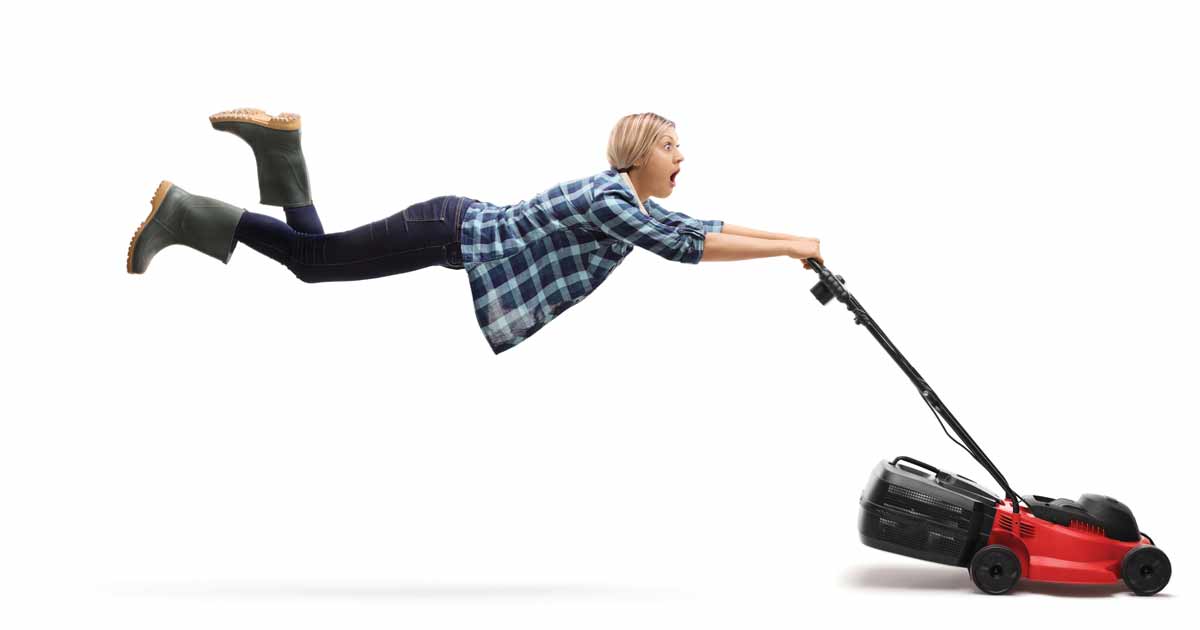We're all familiar with the overbearing whir of helicopter parents—always nearby, ready to protect with high levels of behavioral control and warm affirmations and defined as "a parent who takes an overprotective or excessive interest in the life of their child or children."
This technique, recognized for decades and cleverly designated since the early 1990s, was popularized by baby boomers bringing up millennials. Countless studies confirm the detrimental ways lack of autonomy can manifest from childhood to adulthood. Given the resounding negativity, you'd anticipate a correction from those who only want the best for their children ... Right?
Wrong.
"In the 23 years I have been teaching, parents seeking to remove obstacles from their child's path has become more commonplace—perhaps because it's much easier for parents to reach out through cellphone or email than before the digital age," said Jennifer Reynolds, Jenison Public Schools and Grand Rapids Community College teacher.
"While parents recognize in theory that their children need to learn independence, they do not want mistakes to have a lasting impact."
A recent evolution leaves children further incapable of navigating their world and even more vulnerable within it: Meet lawnmower parenting, aka snowplow or bulldozer parenting. Lawnmower parents go to any lengths necessary to keep their child from experiencing discomfort, inconvenience, or struggle—"mowing down" the person or obstacle creating it.
The college admissions scandal involving actress Lori Loughlin and clothing designer Mossimo Giuanulli is a timely example. Alongside dozens of other wealthy parents, they're accused of paying $500,000 to a fake charity to gain their daughters' acceptance to the University of Southern California. Almost half of the accused pleaded guilty to various felony charges; Loughlin and Giuanulli refuse to accept any wrongdoing.
These suspected crimes are likely a culmination of a lifetime of lawnmower parenting marked by the best intentions.
"As a parent, your first instinct is to rescue because your child enters the world fully reliant on your ability to meet their basic needs," said Sarah Tupper, a local professional and parent raising boys aged 7, 5 and 2. "In my experience watching my children develop logic, reasoning and problem-solving, I've had to be very in tune with the shift of my role from absolute caregiver to resource."
Efforts to protect children from challenges can start small: opting for velcro because tying shoelaces takes more time, skill and effort; running forgotten homework to school to avoid academic reprimand; continuing to manage a medical illness after the child leaves home. By doing instead of teaching, parents cheat children out of lessons born of failure and the coping mechanisms required to navigate it.
"Both children and adults hold themselves to unrealistic expectations," Reynolds adds. "We need to model that failing is how we learn. Parents, whom many youngsters deem infallible and capable of anything, can do this by talking through their own failures with their children. In normalizing struggle, children recognize skills that come easily to those they admire as mastery of the challenges it took to get there."
How can we do better by our children?
Avoid quick fixes. While it may seem easier to provide a speedy resolution, embrace opportunities to coach your child through difficult situations. Your taking over sends your child a clear message: You cannot handle this on your own.
Ask the right questions. Teaching children to be resilient plays a large role in their success. Instead of focusing on how something may have hurt or embarrassed them, acknowledge those feelings and their bravery for trying. Talk through what went well and what they'd do differently. Encourage them to reflect. You might ask: "What was the biggest struggle you faced today?" "If you had a do-over, would you change something you said or did?"
Introduce opportunities for self-advocacy. In teaching your child responsibilty for self, start simple: Have them place their order at a restaurant or check in at a medical office. As they find their voice, coach them through difficult conversations with superiors such as teachers and coaches. If they aren't seeing a desired result—higher grades or more playing time—instill in them the responsibility to navigate that discussion independently.
Become the community you need. "People do not want to admit failure or talk about the hard stuff because of the negative connotation each carries with it," concludes Tupper. "As parents, we need to acknowledge that failure happens every day. If we cannot be transparent and share in the hardships of raising children with one another, how can we ever expect our kids to do the same?"
Chantell LaForest, a born-and-raised Yooper and Central Michigan University alumna, is a communications and events professional who has called Grand Rapids home since 2013. When she's not in line at Starbucks or buried in a book, you can find her coordinating weddings across the Mitten State.
This article originally appeared in West Michigan Woman.




